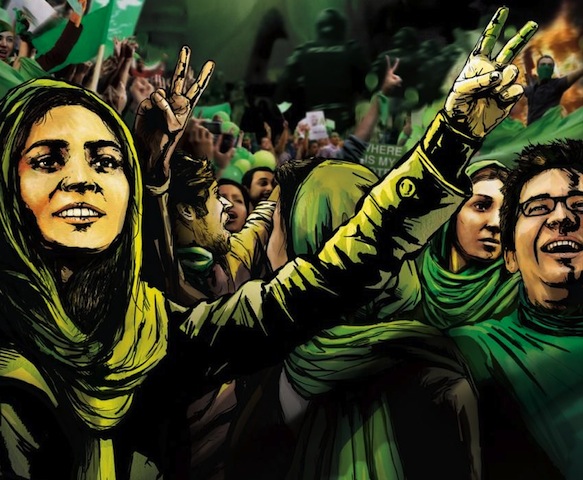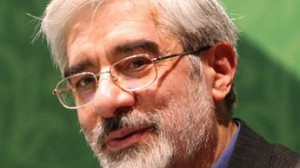EIFF REVIEW: Green Wave a call to arms short on solutions
 As with the documentary Crime After Crime, which screened yesterday, Edmonton International Film Festival entrant The Green Wave suffers from a heavy directorial hand and some arch overacting.
As with the documentary Crime After Crime, which screened yesterday, Edmonton International Film Festival entrant The Green Wave suffers from a heavy directorial hand and some arch overacting.
Nonetheless, it succeeds in its purpose: illustrating the brutal crackdown on rallies for political reform in Iran.
This job is made easier, of course, by the fact that even with harsh censorship, much of the live footage in the film has already been scene on the nightly news. We already know the democracy crackdown in 2009 happened, and that makes it easier to accept that the actors who deliver lines from e-mails and “tweets” of victims are truly capturing the mood. Lord knows it’s not from the subtlety of their delivery.
 And, just like Crime After Crime, I had that odd sensation by the end of the film that I’d just watched a propaganda strip for the opposition party in Iran. Its leader, Mir-Hossein Mousavi, (inset) is practically immortalized in the film as a social reformer, when in fact he’s an arch-conservative ( by western standards) politician who was a key insider of Ayatollah Khomeini’s government and the republic’s last prime minister before the constitutional structure changed.
And, just like Crime After Crime, I had that odd sensation by the end of the film that I’d just watched a propaganda strip for the opposition party in Iran. Its leader, Mir-Hossein Mousavi, (inset) is practically immortalized in the film as a social reformer, when in fact he’s an arch-conservative ( by western standards) politician who was a key insider of Ayatollah Khomeini’s government and the republic’s last prime minister before the constitutional structure changed.
Of course, compared to current President (by rigged election) Mahmoud Ahmadinejad, he’s practically a saint. But his two formative influences were Che Guevara and Mohamed, (although these days, he’s quoting Gandhi.)
Rather than stepping back from the situation in Iran to view its issues from a more global perspective, the documentary instead focuses on terrible political repression, the family tragedy, the fear of secret police.
It makes for good theatre; it’s one of the many reasons why we recycle history’s villains so frequently on film. But for a contemporary documentary, it’s a bit shrill and cheap. It’s as if the purpose were to raise funds for the glorious revolution… not to inform and incite debate about possible realistic solutions. The over-attachment of broad social sentiment to issues best solved with logic has become a cloyingly familiar theme in a lot of recent docs; it’s Michael Moore’s greatest failing, and Morgan Spurlock’s as well.
Perhaps the belief is that the lack of international involvement in Iran demands such drama; and maybe that’s true. But it does add a certain air of artifice to the proceedings.
Although, it’s done with style: the stark, hand-drawn interpretations of Internet posts by people alleging oppression are as disturbing as any courtroom sketch. The voice overs are plaintive to the point of off-Broadway, but sometimes, passion will do that to a person.
More than anything, however, the Green Wave conveys a clear message that Iranians have had enough of theocratic repression, and are looking forward to reform. As such, the sales job appears unnecessary, because in almost every sense, we are just the audience. They are the actors.











